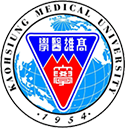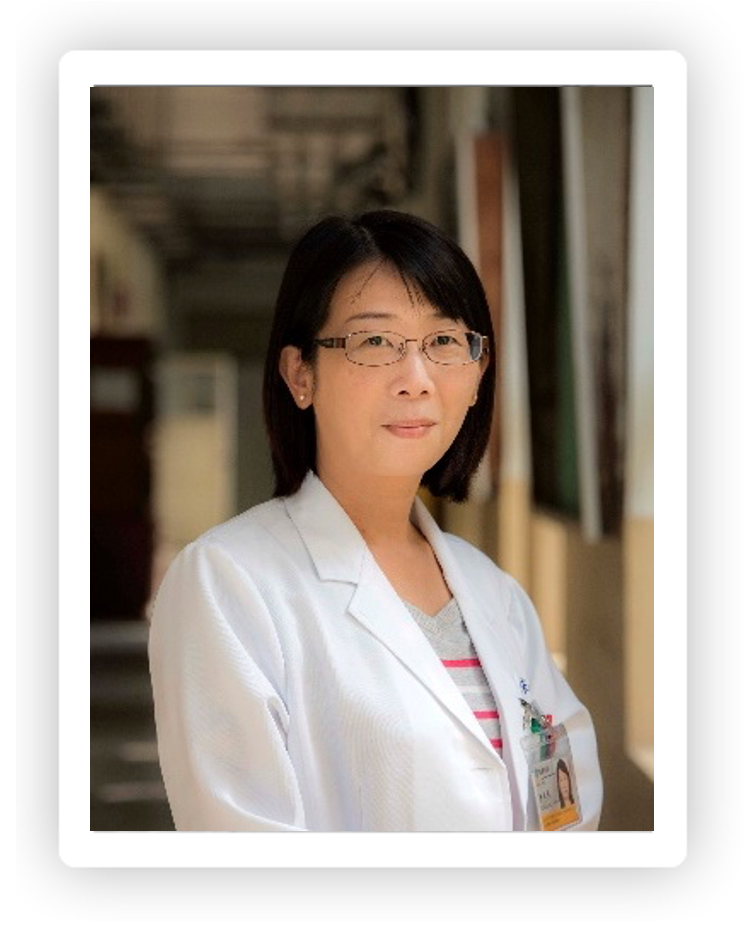I - Mei Lin
Professor
Contact
Education最高學歷
Ph.D. in Clinical Psychology, National Chung Cheng University
Current position
Professor, Department of Psychology, Kaohsiung Medical University
Part-time Research Fellow, Department of Clinical Medicine Research, Kaohsiung Medical University Hospital
Chief Clinical Psychologist, Department of Family Medicine and Weight Management Center, Kaohsiung Medical University Hospital
Part-time Chief Clinical Psychologist, Kaohsiung Hsiaogang Hospital
Chairman of Taiwan Physiological and Neurofeedback Society
Chairman, Physiological and Neurofeedback Development Committee, Taiwan Society of Clinical Psychology
Editor-in-Chief, Journal of Clinical Psychology, Taiwan
Editorial Board Member of Applied Psychophysiology and Biofeedback
Professional experiences
- Host of the Center for Artificial Intelligence and Universal Research, Ministry of Science and Technology
- Executive Director of Taiwan Clinical Psychology Association
- Supervisor of Kaohsiung Medical University's Student Counseling Center and Psychological Counseling Teacher
- Psychological Counseling Teacher, Student Counseling Center, Kaohsiung Medical University
- Career Counseling Teacher, Career Group, Kaohsiung Medical University
- Head of Research and Development and International Group, College of Humanities and Social Sciences, Kaohsiung Medical University
- Member of Gender Equality Education Committee, Kaohsiung Medical University
- Research Advisor, Industrial Technology Research Institute
- Postdoctoral Fellow, Institute of Psychology, National Chung Cheng University
- Adjunct Lecturer, Adjunct Assistant Professor, Assistant Professor, Associate Professor, Department of Psychology, Kaohsiung Medical University
- Director, Kaohsiung Clinical Psychologists Association
- Director, Kaohsiung Mental Health Treatment Association
- Institute for Holistic Health Studies, San Francisco State University, USA
- Vice Secretary-in-general of the Taiwan Psychotherapy Association
- Clinical Supervisor of Physiological Feedback and Psychotherapy, Department of Psychiatry, Joseph Hospital, Department of Psychiatry, National Taiwan University Yunlin Branch, Kaohsiung Chang Gung Psychiatry Department, and Department of Family Medicine, KMUH
Clinical Psychologist Experience
- Clinical Psychologist, Kaohsiung Chang Gung Hospital
- Clinical Psychologist, Psychiatry Department, Wanqiao Veterans Hospital
- Part-time Clinical Psychologist, Department of Psychosomatic Medicine, Rouser Hospital
- Clinical Psychologist, Mental Health Promotion Center, National Chung Cheng University
- Resident Clinical Psychologist at Chiayi County and Yunlin County Mental Health Center
- Clinical Psychologist, Chiayi County Education Bureau, and Social Bureau
Interests
Physiological and neurological feedback (depression, anxiety disorders)
Health Psychology (cardiovascular disease, weight management, physical and mental stress assessment, and treatment)
Clinical psychology (psychological evaluation and psychotherapy)
Licenses
- Clinical Psychologist License (ID No. 000156)
- Biofeedback Certification International Alliance (BCIA) certification
Lab
Physiology and Neurofeedback Lab
Professor Yimei Lin has more than 20 years of clinical psychological practice experience and conducted a one-year physiological feedback visit to San Francisco State University in 2007. The two topics of her research:
(1) Autonomic and heartbeat variability physiological feedback interventions: to investigate the physiological pathology of autonomic mechanisms in depression, cardiovascular diseases (coronary heart disease, diabetes, hypertension), and lung diseases (chronic obstructive pulmonary disease, asthma, lung cancer), and to develop a heartbeat variability physiological feedback program suitable for clinical patients in Taiwan, and to apply it to coronary heart disease, depression, heroin users in rehab and prisons, chronic obstructive pulmonary disease, healthy adults, and exam-stressed junior high school students. We will combine the intervention with the latest wearable device technology and artificial intelligence to verify the therapeutic efficacy. (1)
(2) Brainwave and neurofeedback intervention: To explore the physiopathological mechanism of brainwaves in depressed patients and develop neurofeedback (brainwave training) programs, including frontal alpha asymmetry neurofeedback (ALAY program) and high-beta neurofeedback program; at the same time, to collect the database of brainwave patterns of healthy people in Taiwan and compare it with the database of brainwave patterns in the U.S. to conduct In addition, we collected brainwave patterns from healthy people in Taiwan and compared them with those from the United States, and conducted quantitative brainwave (QEEG) and brain mapping analyses; and developed a whole brain 19-band z-score neurofeedback and a deep LORETA (low-resolution electromagnetic tomography) neurofeedback for patients with depression.
Participating Societies
1. Permanent individual member of the Taiwan Association of biofeedback and Neurofeedback
2. Member of the Taiwan Association of Clinical Psychology
3. Member of the Association for Applied Psychophysiology and Biofeedback, AAPB
4. Member of the International Society for Neurofeedback and Research, ISNR
Awards
- 2019 Ministry of Science and Technology Future Technology Breakthrough Award
- 2019 Best Popular Technology Award, Ministry of Science and Technology
- 2012-2020 Kaohsiung Medical University Research Merit Faculty: Research Merit Faculty Award, General Faculty Group
- 2012, 2018 Kaohsiung Medical University Research Merit Faculty: Research Project Merit Award
- 2015 Kaohsiung Medical University Research Merit Faculty: Outstanding Paper Award
- 2013, 2015~2018 Kaohsiung Medical University Alumni Association: Outstanding Faculty Paper Award
- 2014~2022 Ministry of Science and Technology Award for Special Talent
- Travel Grant and Award Prize of Pulse of Asia 2017 (POA 2017) International Symposium Moderated Poster
- 2015 School Grade Merit Counselor
Grants
Research Project
2. 林宜美(主持人),「鬱症之量化腦波分析暨神經回饋療效研究」。110年度科技部研究計劃(2021/8/1~2022/7/31)
3. 「人工智慧情緒偵測與多模態健康生理訊號整合系統應用在心血管疾病高風險病人之居家心理照顧方案(2/2) 」 。109年度科技部整合型研究計劃:人工智慧(AI)專案計畫(智慧服務領域) (2020/1/1~2020/12/31)。
4. 「人工智慧情緒偵測與多模態健康生理訊號整合系統應用在心血管疾病高風險病人之居家心理照顧方案(1/2) 」 。108年度科技部整合型研究計劃:人工智慧(AI)專案計畫(智慧服務領域) (2019/1/1~2019/12/31)。
5. 「憂鬱症病人的腦波智慧診斷系統」。中山-高醫產學合作研究補助計畫(2019/11/1~2020/10/31)。
6. 「心跳變異生理回饋在學生壓力與情緒調適之療效研究」。明遠生活科技股份有限公司產學合作計劃(2019/10/1~2020/3/31)。
7. 「合併/未合併焦慮症狀的憂鬱症之量化腦波暨神經回饋療效研究-II」。106年度科技部研究計劃(2017/8/1~2018/12/31)。
8. 「合併/未合併焦慮症狀的憂鬱症之量化腦波暨神經回饋療效研究」。105年度科技部研究計劃(2016/8/1~2017/7/31)。
9. 「使用呼吸導引APP訓練前後對HRV參數差異的研究」。工業技術研究院產學合作計劃(2015/11/1~2015/12/31)。
10. 「行動裝置心肺同步呼吸訓練對心跳變異與腦波之成效」。104年度科技部研究計劃 (2015/8/1~2016/7/31)。
11. 「接受心跳變異生理回饋的冠心病患者之一年預後追蹤研究(II) 」。103年度科技部研究計劃(2014/8/1~2015/7/31)。
12. 「心跳變異生理回饋在合併憂鬱的冠心病患者之療效暨一年追蹤研究」。102年度國科會研究計劃(2013/8/1~2014/7/31)。
13. 「探討憂鬱症患者之心理病理機制:自主神經失調與心臟迷走神經調控模式」。101年度國科會研究計劃(2012/8/1~2013/7/31)。
14. 「團體心跳變異生理回饋在憂鬱症患者之療效研究」。高雄醫學大學新聘教師專題研究計劃(2012/1/1~2012/12/31)。

